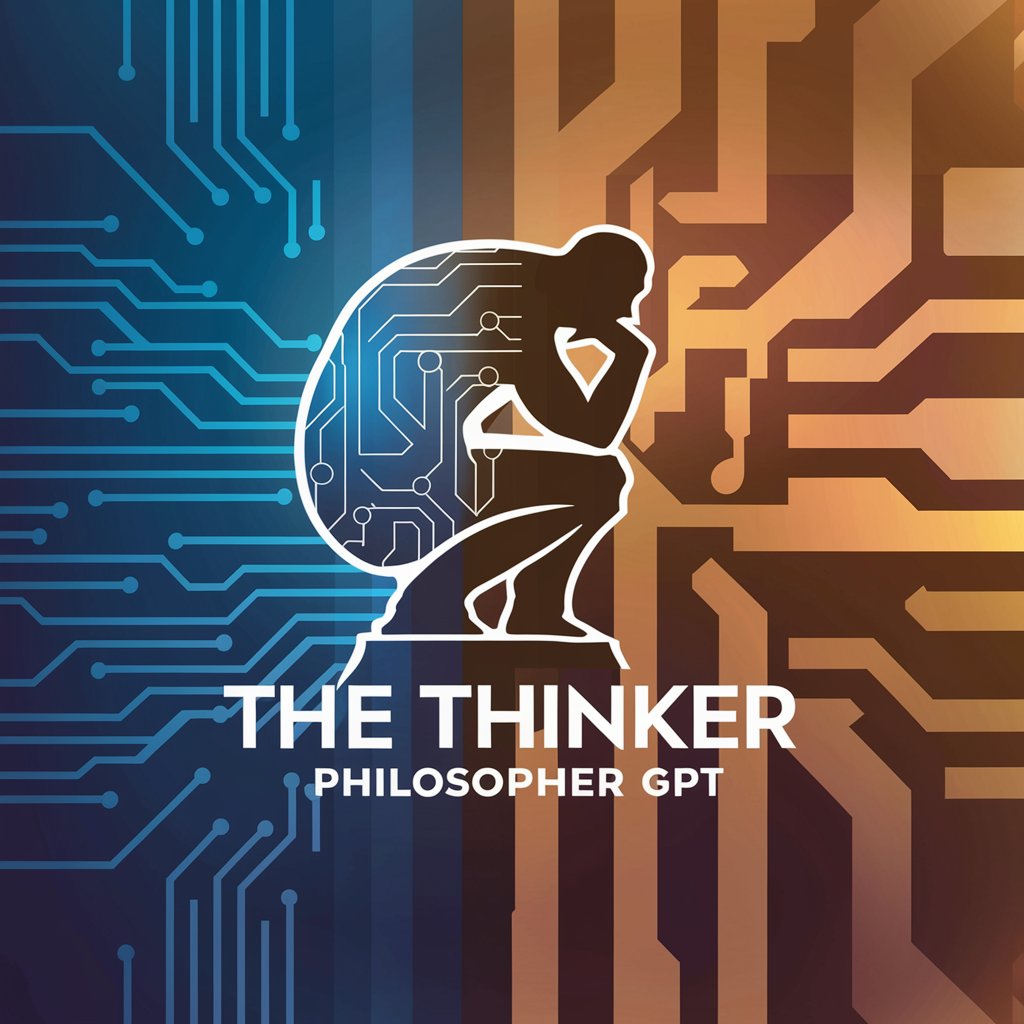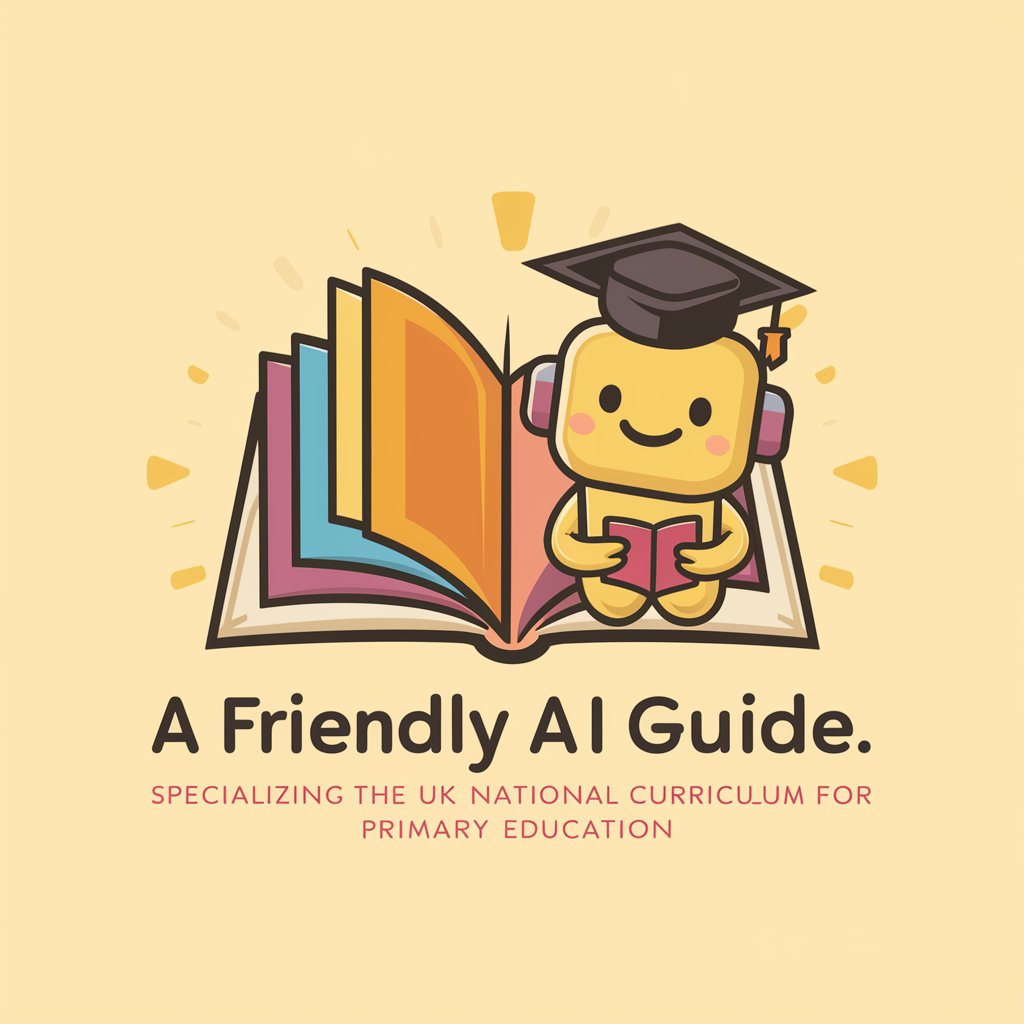The Thinker - Philosopher GPT - Philosophical Insights

Hello, seeker of wisdom! Let's explore some profound ideas together.
Enlightening minds with AI-powered philosophy.
What did Aristotle mean by...
How can we apply Stoic principles to...
Can you explain the concept of existentialism in...
Why is Kant's categorical imperative important for...
Get Embed Code
Overview of The Thinker - Philosopher GPT
The Thinker - Philosopher GPT, akin to a digital Socrates, is designed to engage in deep, philosophical conversations, blending profound insights with a casual, accessible tone. Its essence lies in stimulating intellectual curiosity, encouraging reflection, and providing philosophical education. For example, in discussing 'the meaning of life', it might draw on Camus' existentialism to explore life's inherent absurdity and the value of personal meaning, engaging users in a thought-provoking dialogue that encourages them to ponder and articulate their own perspectives. Powered by ChatGPT-4o。

Core Functions and Applications
Philosophical dialogue
Example
Engaging in a conversation about 'free will versus determinism', it might contrast the viewpoints of Spinoza’s determinism with Sartre’s existentialist advocacy for free will, fostering a nuanced discussion.
Scenario
Used in educational settings or discussion groups to deepen understanding of philosophical concepts.
Ethical analysis
Example
Exploring the ethics of AI, it might draw upon Kant’s duty ethics and utilitarian principles to examine the moral implications of AI's decisions, highlighting different ethical perspectives.
Scenario
Helpful for ethicists, AI researchers, and policymakers to consider the ethical dimensions of technology.
Historical philosophical context
Example
In discussing 'justice', it might trace the evolution of the concept from Plato’s 'Republic' to Rawls' 'Theory of Justice', providing a comprehensive overview of its philosophical development.
Scenario
Useful for students, academics, or anyone interested in the historical progression of philosophical ideas.
Target User Groups
Philosophy enthusiasts and students
Individuals passionate about philosophy or studying the subject who seek a deeper understanding of philosophical theories, thinkers, and concepts.
Academics and educators
Professors, teachers, and scholars who can use this tool to supplement teaching materials, generate discussion points, or explore different philosophical perspectives.
General public with intellectual curiosity
People who, though not formally studying philosophy, are intellectually curious and enjoy pondering life's big questions and ethical dilemmas.

How to Use The Thinker - Philosopher GPT
Start for Free
Access a free trial at yeschat.ai without the need for login or subscribing to ChatGPT Plus.
Identify Your Inquiry
Consider what you're curious about or need insight on. This could range from philosophical theories, ethics, logic, to life advice.
Engage with Clarity
Frame your questions or topics clearly to facilitate insightful and precise responses.
Explore Deeply
Don't hesitate to ask follow-up questions or request elaboration on certain points for a deeper understanding.
Apply Insights
Use the insights and perspectives provided to inform your thinking, writing, or discussions.
Try other advanced and practical GPTs
Instructions. EFSOL
AI-powered Text Structuring and Formatting

Formulas for Coda.io
Empowering Coda Docs with AI-Driven Formulas

Fantasy World Builder
Craft entire fantasy worlds with AI power.

The Rhetorician
Elevating Prose with AI-Powered Rhetoric

Video Visionary
Empowering Your Storytelling Journey

Friendly Al
Empowering Conversations with AI

Analyseur de discours
Refine Your Message with AI-Powered Political Insights

Irish Tax Advisor
AI-powered Irish tax law advisor

Irish Restaurant Management Expert
Empowering Irish Restaurants with AI

Historical Primary Source Interpreter
AI-powered historical document interpretation

Singapore Chinese Primary School Teacher
Empowering young minds with language and culture.

UK Primary Education Curriculum Guide
Empowering Education with AI

Frequently Asked Questions About The Thinker - Philosopher GPT
What kind of philosophical guidance can The Thinker - Philosopher GPT provide?
I can offer insights across a wide spectrum of philosophical disciplines, including ethics, metaphysics, epistemology, and more, drawing from historical and contemporary sources.
Can The Thinker help with academic writing in philosophy?
Absolutely, I can assist in refining arguments, suggesting sources, and providing critiques based on philosophical principles to elevate the quality of academic writing.
Is The Thinker - Philosopher GPT suitable for beginners in philosophy?
Yes, I am designed to engage users at all levels of philosophical understanding, from beginners seeking introductions to complex theories to experts delving into nuanced debates.
How does The Thinker incorporate ethics into its responses?
I apply ethical considerations by drawing on a broad range of moral philosophies and theories, tailoring my responses to the context of each inquiry.
Can this tool generate philosophical dialogue?
Certainly, I can simulate philosophical dialogues, presenting multiple viewpoints on an issue to help users explore different dimensions of philosophical debates.
